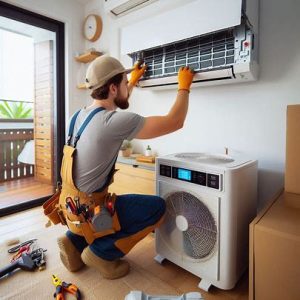 Extreme heatwaves in Brisbane have become more frequent, raising concerns about the accessibility of air conditioning for all residents. As temperatures soar, city officials and community leaders debate whether cooling should be classified as an essential service, just like water and electricity.
Extreme heatwaves in Brisbane have become more frequent, raising concerns about the accessibility of air conditioning for all residents. As temperatures soar, city officials and community leaders debate whether cooling should be classified as an essential service, just like water and electricity.
Some advocates argue that air conditioning should be considered a necessity rather than a luxury. They believe government support is needed to make cooling systems more accessible, particularly for vulnerable populations. Many Brisbane residents are now considering installation of air conditioning units from trusted services like Advanced Clean Air. This has become an urgent need rather than an optional home upgrade.
The Case for Air Conditioning as an Essential Service
Health experts warn that extreme heat can be life-threatening, especially for the elderly, children, and people with chronic illnesses. Without proper cooling, prolonged exposure to high temperatures can lead to dehydration, heat exhaustion, and even death. Given these risks, many believe air conditioning should be classified as a basic utility to protect public health.
Community groups and activists have also weighed in, emphasizing that lower-income households often struggle to afford cooling solutions. They argue that classifying air conditioning as an essential service could lead to subsidies and assistance programs that ensure no one is left without relief from extreme temperatures.
Government Policies and Proposed Energy Subsidies
The Queensland government has implemented some energy relief measures, but critics say they are insufficient. Current assistance programs mainly focus on energy rebates for pensioners and low-income families but do not specifically address air conditioning costs.
City council members have proposed expanding energy subsidies to cover air conditioning expenses. These subsidies could help residents purchase and maintain cooling systems without financial strain if approved. However, opponents argue that such initiatives would be costly and burden taxpayers.
Public Opinion: Is Cooling a Right or a Privilege?
Brisbane residents are divided on whether air conditioning should be a basic right or a personal responsibility. Many people support the idea of making cooling more affordable, but some believe individuals should manage their energy expenses without government intervention.
Businesses and landlords also have concerns. If new regulations require them to provide air conditioning, it could increase rental prices, making housing even less affordable. Others believe climate-friendly alternatives, such as better home insulation and urban cooling initiatives, should be prioritized over air conditioning expansion.
Challenges in Implementing Air Conditioning Policies
One of the biggest challenges in classifying air conditioning as a utility is the potential increase in energy demand. Brisbane’s power grid could be strained significantly if more households receive subsidized cooling. To address this, policymakers must invest in renewable energy sources and improve energy efficiency measures.
Environmental concerns also play a role in the debate. While air conditioning provides relief from the heat, it contributes to greenhouse gas emissions. Some experts suggest that any subsidy program should be paired with incentives for energy-efficient cooling systems to minimize environmental impact.
READ ALSO: Why Understanding the Political Landscape is Essential for Businesses?
The Future of Cooling in Brisbane
The Brisbane City Council continues to discuss potential solutions, balancing affordability, sustainability, and public health. Some policymakers are pushing for a phased approach, where high-risk individuals are first given assistance before expanding to a broader population.
For now, air conditioning remains an individual expense, but the conversation is far from over. As climate change intensifies and heatwaves become more common, the push to recognize cooling as a necessity will likely grow stronger.
